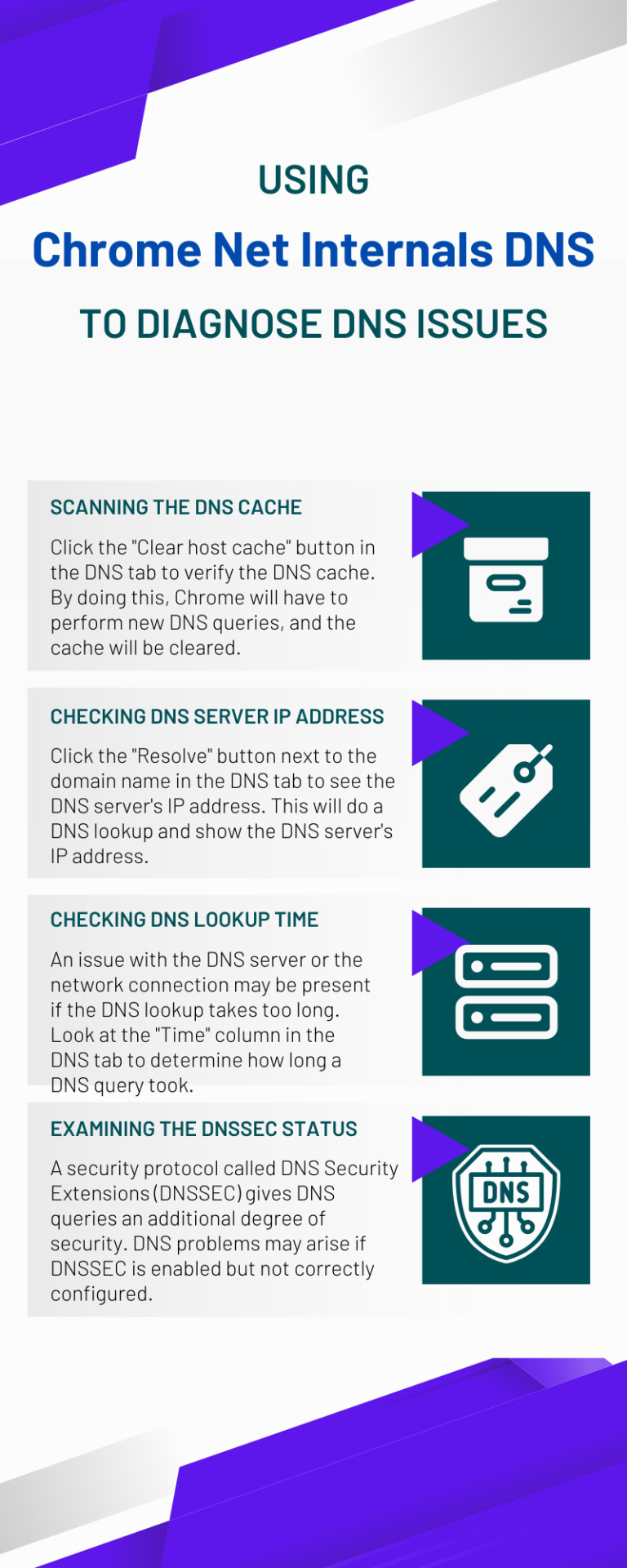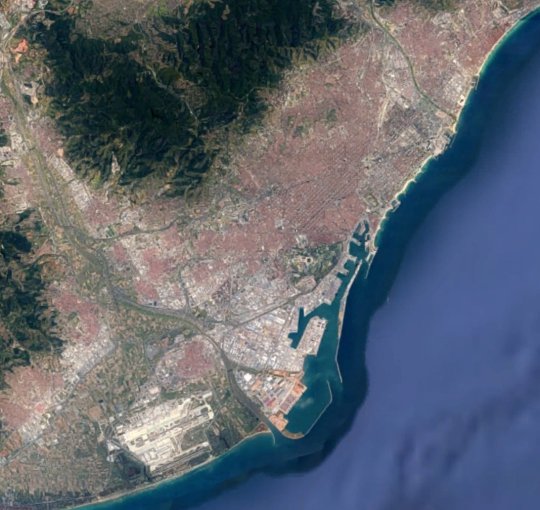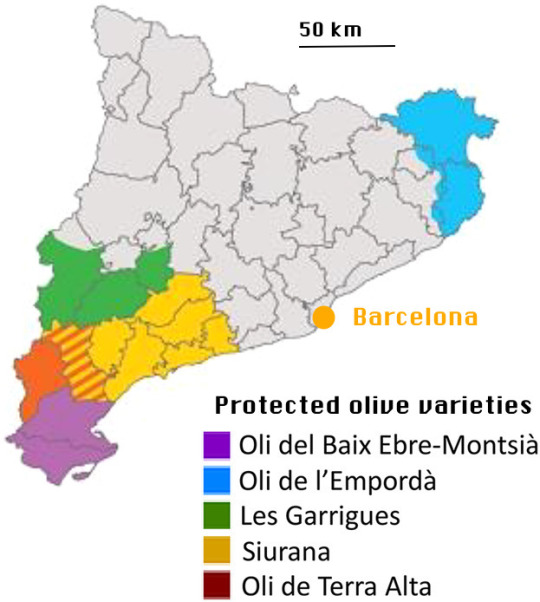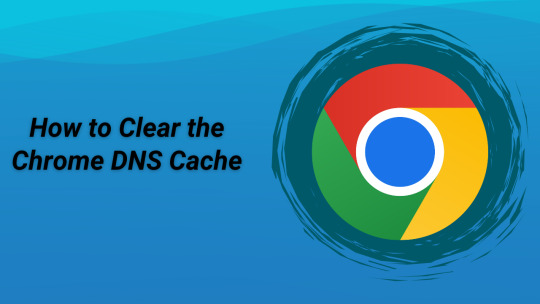#chrome net internals
Explore tagged Tumblr posts
Photo

Learn how to flush the DNS cache in Chrome with our ultimate guide to chrome://net-internals/#dns. Clear DNS cache to fix website loading issues now.
#chrome#chrome net internals#dns#DNS Issues#dns server#dns solution#dns lookup#dns cache#dns issue#dns query#ip address#flush dns cache#chrome://net-internals/dns
0 notes
Link
0 notes
Text
#chrome.//net-internals/dns#chrome //net-internals/#dns#chrome://net-internals/#dns clear#www.chrome //net-internals/
0 notes
Text
Wh
Why, on my work computer, is ao3 blocked on Firefox but not chrome
Like, it even got blocked on chrome for a day and then UNblocked.
I know the reason Reddit isn’t blocked on either browser—the IT people use it (it’s just the easiest place to find tech help, still) (literally every other social media/blogging platform is blocked)
When I first started working there, ff dot net was blocked but ao3 wasn’t, which lead to me joking about someone in IT being in fandom and also kind of a snob
And the fact that it was blocked and then unblocked makes me wonder if there’s once again someone in IT who reads fics aaaahaha
(We have a central IT department in another city)
Here’s the funny thing: so I’ve been using Firefox for my personal online stuff while at work (Reddit, NYT, weather) and chrome for stuff related to work (our internal website for residents, the site where we keep shared files)
And when I go on break usually I just minimize Firefox before letting my coverage sit down
And now I have to remember to ALSO close a chrome tab or I’m at risk of a coworker seeing what I’m reading 😬
#look I know IT can see what I do online#but they don’t care if I’m not breaking policy#which means giving out resident info#my life
6 notes
·
View notes
Text
Chapter 202 Trivia (Part 1)
I missed the food-focused chapters… 🤤

The brand parody here is Coosur, which is made in the Jaén province of southern Spain (=nowhere near Barcelona). The brand is quite popular, and is also international.
Additionally, Spain produces around half of the world's olive oil, the most of any country!


If you've forgotten the Age of Exploration arc, "desire is noble" is both the name of Francois' debut chapter and their motto!



The tagline for this chapter is "olive in floriography means wisdom (知恵) and victory (勝利)", however all the sources I found said that olive meant peace rather than victory.
Ryusui's holding a dirty martini, a drink known for the unique garnish of an olive. To make it, you need gin, vermouth, and a splash of olive brine.
The brooch he's wearing seems to be a dragon's wing and a flower that I can't identify (it's not related to Spain or olives).




Barcelona is one of the largest metropolises on the Mediterranean Sea and 5th most populated city in the EU. It has two rivers running through it that have survived the 3700+ years, and a mountain range to the west.
The stone world seems to have given it new islands though!


Most Spanish olives are harvested from the south, but Catalonia still accounts for ~5% of all olives produced in Spain. It is a bit of a trek to get to the olive growing regions from Barcelona though!
The olive harvest is normally from November to March, across the winter.

The modern way to harvest olives is by shaking the tree so that all of the olives fall into a net. Ryusui is shown using the traditional way where you knock the fruit off with a pole (Hyoga would have been great for this).

The olives are then cleaned, crushed into a paste, and spun in a horizontal centrifuge like the one Kaseki made to separate the oil from the solids. Do this a few times to make sure everything is properly separated and you get olive oil!


There's couple joke sound effects this chapter, first is Kohaku's "grrlla" (it literally says "gōrira", so "gorilla" with a slightly longer 'o' sound), then Suika's "mlllk" (literally "gyunyu", the word "milk" in Japanese is pronounced "gyūnyū").


Ajillo is an olive-oil-based sauce that is flavoured by frying garlic ("ajo") and guajillos chillis in it. Other things can be added as well, such as salt, pepper, lime juice or wine.
Ajillo dishes are simply things that have been cooked in this sauce.

Since Francois stayed on Isla Martin Garcia rather than at Araxá, they had the opportunity to learn Spanish.
As usual, Francois' foresight of what will be needed is incredible.

Chelsea has also expanded her language repertoire by learning Japanese. Hers is more slang-filled, as she takes Chrome's "baaad", Gen's pig latin and Ryusui's usage of "desire".

Ukyo must have taught Chrome to use a bow and arrow at some point, possibly during the Age of Exploration?
That, or Chrome is just pretending to know how to use it.


(Next part)
20 notes
·
View notes
Text




.::. WHAT WAS CONSUMED OF ME? .::. cyberware.txt

Playing too free and loose with the net has its pitfalls, and Ikarus is well aware of them. Given his first neural uplink in a shady operation at little more than fifteen years old, his still-growing body regularly experienced damage from the electrical impulses often deployed against those picking around where they don't belong- and mental strain endured while netrunning, a close call frying the connections between his mind and his own right hand in his late teens- it was on his mother's recommendation that he replaced it, instead of seeking therapy or perhaps retiring for a short time from his dives into the depths of code for a time to let those connections slowly filter back in.
An Ichibangase/Eisher produced implant Ikarus' right arm is top of the line- installed in his teens and upgraded as Ikarus himself grew into a man, it's been largely the same since his youth, with exception of additional, improved weapon suites and stealth modifications made after-market to ensure that he is never left unarmed so to speak. Bearing pointed, razor-sharp claws cleverly hidden in the paneling of his more 'human' hand, the points remain precise and capable, able to manipulate even the smallest computer chips even with them exposed- though given their lack of sensation- Ikarus tends to prefer to use the touch-feedback sensitive fingers of the 'standard' hand. The flowing arcs of red light and electricity that shift like muscles beneath a hard outer shell are the single indication that the implant contains a railgun- grounded through the additional metal implanted within Ikarus' body after years of net diving, it can muster exactly five high powered, nigh-unstoppable by anything short of electromagnetic shielding shots before requiring a relatively lengthy recharge period of 30 minutes for an additional round, unless overclocked to strip power from elsewhere in his body.
His interfaces are more difficult to place, and are only at their most obvious when under the guise of 1NF1N1T3FUN, a helmet aping the image of a fox's head and face with projectors to display eight eyes over its scrawny, seemingly rotting visage, this headware is intended to mitigate and lighten the load he takes on while in the chair, and hide his identity in holos put out with NANO ZILLA's demands, or ransoms over information. lit in a harsh red and machined to match perfectly with his already installed port and the pre-existing damage to his body, it is comfortable enough to remain hidden beneath as long as he might require it- as only those who have earned his trust in his crew have seen him without it.
all internal interfaces, however, are starting to show their age. the operation to install his neural port was botched- 'overclocking' his connections if he's not careful- or mitigating with his helmet when wired in, he risks the loss of more than just his neck-to-right-shoulder connection- that expanse of his upper body- and some of his back and spine- mapped in sprawling carbon, chrome, and dancing red electricity. This too, is a secret, regularly wearing turtlenecks and long-sleeves to hide the bulk of his damage, in an effort to avoid looking weak, or perhaps, worrying his people. His on-board chipset, used for on-the fly hacking, scanning, and day-to-day business a phone might have previously filled the space of is a decidedly early model, jailbroken and regularly updated with the required work-arounds for modern technology- it works slowly, but effectively- many chromed-up cowboys unable to give chase as Ikarus makes a slow, lazy retreat unfettered by smart weapons or speed-enhanced limbs, quieted by anesthesia in code. . .
5 notes
·
View notes
Text
Hey uh remember when I did retrospectives of Last Week Tonight episodes? Let's bring it back to 140.
Last Lee Tonight (wherein I'm definitely showing United Passions at my next bad movie night) Season One, Episode Six

(original air date: 6/8/2014) Major topics covered: FIFA, Bashar al-Assad's incredible iTunes library
"And speaking of Germans losing things, it was the 70th anniversary of D-Day this week."
It's really nice to throw this show back on again, on a note unrelated to the purpose of this project. I don't talk much about myself but it's been a rough few months with work scheduling, my chronic illnesses, and my mental health. For every "I'm taking a very spontaneous and ill-thought-out trip to New York to see John Oliver WOOO!" moment, there's been at least five "why can't I catch a break"s. When I'm not being beaten down by the collective forces of capitalism, I genuinely haven't been watching much John at all, mainly in an effort to play the large backlog of video games and read the large pile of books lying around my house. I've been moderately successful there (hey y'all should give Cassette Beasts a go, it's delightful), but there's nothing like going back home, so to speak. (I hesitate to call LWT a comfort show for me, given that it's basically A Record of the Decline of the United States in Real Time, but it kinda serves that function to some degree. I am a psychopath.)
Where we last left off in... May, Jesus Christ, I'm so bad at scheduling and writing and content creation - when we last left off in May at Episode 5, things were finally starting to coalesce into the modern LWT experience. We had our first viral segment on Net Neutrality, the first time a segment was uploaded in full to the LWT YouTube, and an opening news roundup that was starting to feel more thoughtful and themed. This episode continues that theme and gives us our second big viral topic.
There is a variant on the desk-slapping here, where John doesn't do it to open the show, but does a milder version of it to get the audience to shut up so he can move on with doing the show. One of my favorite things about him is his constant desire to barrel through clapping or any audience praise of anything he's done at a given moment in time and this opener is a pretty good example of that.
We open on John calling the week disappointing because California Chrome, a horse competing for the Triple Crown, did not win the Triple Crown. You can tell this is an early episode of LWT because there is no prerequisite horse-fucking/bestiality joke, just John angrily saying "fuck that horse" about Tonalist, the horse that defeated California Chrome. All of these horses sound like indie bands from my college years. I feel like Tonalist opened when I saw MGMT live.
We then move into German Who Wants to Be a Millionaire. This gives John an opportunity to plumb one of his favorite comedic depths, making fun of the musicality, smoothness, and romanticism of the German language. A German man used his lifeline to call Chancellor Merkle, who, thankfully, did not answer, as she was busy running Germany.
This transitions into China hiding the events of Tiananmen Square from their populace, including by censoring the Internet.
youtube
Attempts by protestors to use different trending words - and to put facts about Tiananmen Square in a sex tape - to get around that were also clamped down on, leading to this absolutely glorious screenshot of John's hypothetical romance novel:

I feel like someone on Reddit probably wrote When Spring Turns to Summer recently.
We also learn that Friends is incredibly popular with Chinese youth. I'm not really shocked by this, Friends has a weird international reach. I know multiple Korean idols who learned English partially through watching Friends. The fact that there's a Chinese replica of Central Perk? That's wild. The show edits a Friends clip to include historical facts about the massacre, and then we move to our central story.
I'm a big fan of whenever John talks about FIFA and football in general. Recently in one of her "posts relevant to my interests", @tellthemeerkatsitsfine noted that there's a strain with John and his contemporaries with them being nerds who really wanted to be jocks, and I think that dichotomy really helps John come off credibly when he talks about the deep-rooted corruption in this particular organization. The sport is something that is literally rooted into him, hardwired as something he deeply cares about... but there's the rest of it to consider.
youtube
In my opinion, someone who deeply loves something can really be the best at describing everything wrong with it. You don't really find the grime if you're only on the surface of something. I know that critical observation of a fandom while in said fandom is in short supply these days, but I wish it was more common.
Anyways. I think FIFA's corruption and grotesqueries are pretty known in 2023, but at the time, knowledge of their fuckery wasn't as widespread. Socially, we've definitely spoken a lot more about the cost-benefit analysis of the Olympics and taxpayer-funded stadiums, which is comparative to John's opening about the issues with FIFA and claims that World Cups bring money to the areas hosting them. (Not true!) Other items I'd completely forgotten about, like FIFA Court and their boardroom looking like something out of Dr. Strangelove.
The "And Now This" is "Chris Matthews Reminds Everyone Who He Used to Work For". (Answer: Tip O'Neill.) My abiding memory of Chris Matthews is Zell Miller accusing him of beating a woman and challenging him to a duel at the 2004 Republican National Convention.
youtube
SNL had a pretty great sketch of this where Will Forte played Miller that I can't find right now. PISTOLS AT DAAAAAAAAWN MATTHEWS!!!!
The final segment is on Bashar al-Assad's campaign of terror against Syria, rigged electioneering, and chemical warfare. More importantly, al-Assad's life history and iTunes library are discussed.
youtube
This was also the subject of the classic Bugle episode 187, which has a chance to go far more in depth about his favorite music, like "Sexy and I Know It". (Andy Zaltzman describing Lil Wayne and Busta Rhymes as a doubles tennis group is one of my favorite Bugle moments of all time incidentally.)
Right Said Fred coming out to perform an anti-Assad version of "I'm Too Sexy" gives us the first time John has had a celebrity come out basically to troll one single person, and thus almost the cornerstones of modern LWT have been established. Eagerly awaiting the first bestiality joke. Also, really love the changed lyrics, they put a hell of a lot of effort into this one. I wanna see Right Said Fred live now.
Random notes:
Lee will continue sexualizing one (1) older man damn it: light blue and dark blue checked shirt, black tie, and black jacket? I know I've said red is John's color but light blue is a very close second, 10/10
I feel like I made up for not doing these for two months by writing about five year's worth of unnecessary analysis of this damn episode. Hopefully you enjoyed it!
It was amazing seeing an ESPN ad for something not handegg-related. -groan-
LWT YouTube is still a bit confused, as we did get the two major topics as their own videos... and then 1 minute of the FIFA section as its own minisode. I really would love to know the logic behind why there specific jokes were isolated like this in the beginning of the show's airing.
youtube
My sausage, if anyone cares, is the Korean idol industry. It's an absolute cataclysmic nightmare and yet there's a lot there personally that changed me and a lot that I love out of it. It's complicated. Fuck SM Entertainment.
A reminder that John's LMFAO fandom has endured for a decade longer than the band itself lasted:
youtube
#john oliver#last week tonight#last week tonight with john oliver#last lee tonight#fifa world cup#seriously debating tagging zell miller in case anyone has that snl clip#zell miller#the bugle#the bugle podcast#andy zaltzman#Youtube
13 notes
·
View notes
Text
OC Profile: Salty
Basic Info
Name: Elena Armitage
Alias(es): Salty, Priestess of Spiders, Gorgon of Totentanz
Date of birth: [redacted]
Zodiac sign: Gemini
Gender: Female
Place of Birth: [redacted]
Sexuality: Straight

Appearance
Height: 5’6 /169cm
Build: Slim
Hair: Grey/dirty blonde
Eyes: replaced by Maelstrom optics
Cyberwear: Deep dive port, arms with personal link and interface plugs, Maelstrom’s own optics and body cybernetics, Synthskin, blackmarket Self-ICE, Fuyutsuki Tinkerer Mk.3 Cyberdeck, RAM and Memory boosts, artificial heart and lungs. Voice modulator, cybernetic teeth and jaws.
Background
Father: [redacted]
Mother: [redacted]
Languages: English
Affiliations
Maelstrom: member
Militech: former agent
Occupation: Netrunner
Role: Tech-occultist, Netrunner, technomancer
Weapons: clawed and spiked cyberarms, offensive Daemons, whatever weapons she can get her hands on
Personality type: ESTP-A Entrepreneurs always have an impact on their immediate surroundings – the best way to spot them at a party is to look for the whirling eddy of people flitting about them as they move from group to group. Laughing and entertaining with a blunt and earthy humor, Entrepreneur personalities love to be the center of attention. If an audience member is asked to come on stage, Entrepreneurs volunteer – or volunteer a shy friend. Entrepreneurs leap before they look, fixing their mistakes as they go, rather than sitting idle, preparing contingencies and escape clauses.
Good luck getting Salty to tell you about herself as she will obfuscate and tell half-truths or lies to keep people off track.
Nobody is certain how old she is but one thing that is known is she was once an agent for Militech. She was a Netrunner but specifically she was also known for being able to extract information from those Militech had interest in provided they were alive to tell the tale. In Maelstrom she’s perfected this so she can even do this with the dead.

How she ended up with Maelstrom? Some say she found something in the net which sent her to the brink of cyberpsychosis, something that Militech didn’t want her to find again. Others say she was the victim of internal corporate politics and found discarded in Northside where she was picked up by the gang, others say she was a deep cover agent sent to infiltrate the gang and abandoned her handlers. Perhaps it’s a a bit of all of those? Either way, Elena was no more, and Salty was born in blood and chrome.


Elena was always fascinated by the darker side of the Net and found a home in Maelstrom with their immersion in occultism and the fusion of that with cyberspace and cybernetics. She happily delves into places few go to find and harness or contain and control what she finds.
As somebody who dealt with the human mind and drawing information from it, she takes a deep interest in that as well as how to digitise them for her own use. She’s come up with her own way to do this and has been experimenting with it on others. Usually people Maelstrom have captured and don’t want to chrome up. Not all of them get what Salty does but some of her methods are just as bloody which keeps them happy.
Salty is V's mother and her relationship is complicated. Vesper doesn’t know about this as she was left with a woman who lived in a motel in Northside and her father, a Maelstrom ganger, sometimes reluctantly had her around. Vesper wasn’t intentional and so Salty is in her life as a friend. A more friendly face to Maelstrom for the young girl. She doesn’t care for Vesper as such, more that she presented an opportunity for Salty because it was clear she was surprisingly resistant to cyberpsychosis.
Salty has no hobbies other than what she does mentioned already. You will find her frequenting Totentanz when she’s not deep in the net or her studies.
Salty is more stable for a Maelstrom member. She dances along the edge of cyberpsychosis like many of them but maintains her self by her studies and her purpose. She’s also less hostile than others because it’s an easy way to gain trust from others which she can exploit later. Nothing she does is without reason, even if it seems like madness. She is manipulative and has a knack of finding the best way to get to a person to use them. She doesn’t have much emotional attachment to people, it’s mostly attachment to their utility for her goals so any appearance of caring is for show only.

Salty took her name from the Salticidae family of spiders as she’s obsessed with jumping spiders. She frequently uses them in her cyberspace appearances but she changes this accordingly. If she’s being more approachable it’s more cute and cheerful looking. If she’s aggressive then it’s more horrifying, bigger and made to make others feel fear.
She’s particularly interested in dolls because of the behavioural chip and how it operates. Ren is a particularly interesting one because of his lost memories from his past career with Netwatch. For that she becomes an enemy of Carmelo’s and Charlie's.
People she gets along with are Dum Dum, Brick, V(esper), Voss, Misty. She knows of Ren through Misty. She is neutral on Lightning.
Enemies are Royce, Netwatch, Carmelo, Frederick, Charlie.
#cyberpunk 2077#virtual photography#oc profile#cyberpunk#oc: salty#cp2077#Maelstrom#netrunner#cbp2077#my oc stuff
12 notes
·
View notes
Text
The Ballad of Riley Coleman (4)
There's this quote I've been hearing around the intranets, lately. Those millions of nodes for isolated, miniscule dissident groups, or punks, or just school friends wanting to skirt the limits between local security legislation and their safety.
That quote's from a man called Bai Jian. Everybody conflicts on the details. Anarchist, Marxist. Chongqing, Guangzhou, Shanghai, Shenzhen. Someone says he's a liberal democrat. Someone else tells them they're a worthless, donkey-shitting idiot, and pull up some time his intranet distri-packages contained some quote from Malatesta or Luxemburg or whatever.
All anyone knows is that it came out on one of the final reports out of China from a spy ring in some provincial committee, somewhere. Before Zhongnanhai, the Party brass, released new disciplinary rules and the Prowler intelligences to back them up across the Net. Before Yang Fenghe became General Secretary, and the Zuzhibu Oligarchy sprang into place.
"Liberty shall not pass unmourned from this Earth. Hope will never leave it."
The last day before my tour ended, before I was rotated back home, that girl and I met for the last time. All we shared was this bottle of cheap wine she'd gotten as a gift from an E.P.A. field worker, from their office Christmas parties a month ago. She asked me what I was gonna do next.
I told her I was gonna find a home. Some decent place to settle down.
She told me she was gonna quit. That she was never gonna stop moving again.
That stayed with me for a while.
How couldn't it?
I wasn't remembered for Ecumene. I wasn't remembered for the eye and the leg I lost. I wasn't remembered from that woman's testimony, even after she was photographed attending some party congress in Ankara. I've heard from her. In bits and snatches. But never direct contact. Intranet security's intranet security.
I was the "Whitehall Intern". That's what the press called me, or that grainy footage of me, when they started rolling out the clips and the controversy. The angry young bastard in the world's most horrendous button-up shirt, just throwing his papers into the air and storming out during this one I.M.O. conference in London. Went viral. Or it was. Before N.A.T.O.'s Internet Security Directive. Before the Western world shut down its riotous net.
I put in my resignation then and there. Started up a little intranet profile. Fled to Barcelona to meet a friend in Catalonia. Booted up a pirate radio station. Fled to Manila to escape the police.
Here I've stayed. Here I'll remain, in the Marches of Asia, they call them. Good luck to the Home Office. Good luck to the boss. No matter how hard they want to search, they'll never find me here. They don't want to, and can't. They've got Edinburgh to fight over and Brussels to bicker with.
They call me Riley Coleman. That isn't the name on my records. Born in 2054, in the shithole that's Manchester, in the civil war-ridden shithole that's still internationally recognized as the United Kingdom. Accidental cyberpunk. Witness of the Chernobyl of the New World. Getting older and older, barely being able to afford my implants and my estrogen and everything else left to me in this world. Going mad from the revelation.
The world doesn't know what I look like, nor do they know the sound of my voice, but they know the feel of my text. As a true dugong pintura should be.
I only know a few things. But I remember much. All I can do is hope, pray, and fight.
Something's brewing down in this country, along the Marches of Asia.
"In this age, of famine, flood and fire."
Previous:
https://www.tumblr.com/bread-roses-and-chrome/740387406355857408/the-ballad-of-riley-coleman-3?source=share
3 notes
·
View notes
Text
NordVPN : Best VPN for IPTV in Canada 2023
NordVPN is a Panama-based VPN solution that is understood for its personal privacy and safety and security features.
-> CLICK HERE TO VISITE Cobra IPTV Website
The service has a visibility in 60+ countries using 5500+ web servers worldwide. Most importantly, it offers a detailed collection of protection functions that offer the very best personal privacy securities, such as NordVPN kill button & Obfuscated servers, that make the solution a suitable selection for IPTV clients.
It is a safe VPN that can help you access Cobra IPTV CLICK HERE streaming from anywhere around the world, including China. Meaning with NordVPN, you can access international networks on Iconic Streams, TV Team, Twitch TV, RedBox television, and so on. When we evaluated IPTV services with NordVPN, we never ever needed to alter a server location because all NordVPN web servers worked penalty. No doubt, NordVPN is also detailed among the most effective VPN for Twitch TV in Singapore.
An additional plus point of NordVPN is that you can pick a particular web server place in a country. For instance, if you attach to a United States web server, it will certainly enable you to select an US city and also connect you to a web server place of your option. You can access different libraries of Netflix with NordVPN, consisting of the USA, UK, Japan, and South Korea, outside those countries.
NordVPN also sustains significant tools, including Windows, macOS, Android, iOS, as well as Linux, as well as has internet browser extensions for Chrome and Firefox.
While you should not need to bother with invasive ads when streaming IPTV, some dishonest channels might choose to leave some promotions on your gadget. To counter after that, you will absolutely call for NordVPN's ad-block attribute called CyberSec. Additionally, you obtain a Double VPN attribute for an extra layer of protection that passes your information with not one yet 2 different VPN web servers.
Apart from a routine function examination, we also carried out a NordVPN speed examination in Singapore on a 100 Mbps net link. Its download rate was 83.82 Mbps, as well as its upload rate was 44.64 Mbps.
youtube
This IPTV VPN is offered for SGD5.3/ mo (US$ 3.99/ mo) (Get 57% Off + 3 Months FREE on 2-Year Plan) and features a 30-day money-back assurance. To understand even more regarding NordVPN, explore our NordVPN evaluation in Singapore.
Pros
Rapid speeds for binge-watching
A lot of servers for streaming any kind of geo-restricted website
Top-grade protection requirements
It comes with an Adblocker
24/7 real-time chat feature
Disadvantages
You have to click two times to obtain connected
Obtain NordVPN for IPTV in SG
4 notes
·
View notes
Text
How to Use Chrome’s Net Internals DNS Tool on Mobile Devices for Better Network Management

Chrome’s chrome://net-internals/dns tool is an invaluable feature for diagnosing and managing DNS settings, especially when facing connectivity issues. While most users know this tool on desktops, it’s equally beneficial on mobile devices. In this article, we'll cover how to use chrome://net-internals/dns on mobile devices, why it’s helpful for DNS troubleshooting, and tips to optimize Chrome's performance on Android and iOS.
What is chrome://net-internals/dns?
1.1 Understanding Chrome’s Net Internals Tool
1.2 The Importance of DNS Caching and Flushing
How to Access chrome://net-internals/dns on Mobile
2.1 Compatibility on Android and iOS
2.2 Step-by-Step Guide to Using Net Internals DNS on Mobile
2.3 Troubleshooting Common Access Issues
Why Clear DNS Cache on Mobile Devices?
3.1 Benefits of Clearing DNS Cache for Network Performance
3.2 How DNS Cache Affects Page Loading Speeds and Connectivity
Best Practices for Using Chrome’s DNS Tool on Mobile
4.1 Optimizing Chrome’s Network Performance with DNS Settings
4.2 Regular Maintenance Tips for Better Browsing on Mobile
Key Differences Between Desktop and Mobile Chrome DNS Management
5.1 Accessing Advanced Chrome Features on Mobile
5.2 Limitations and Workarounds for Mobile Devices
FAQs
Q1. What is the purpose of chrome://net-internals/dns? chrome://net-internals/dns is a Chrome feature that allows users to view and manage DNS settings, clear DNS cache, and troubleshoot connectivity issues, offering more control over their network performance.
Q2. Can I use chrome://net-internals/dns on Android and iOS? Yes, you can access this feature on Android. However, it’s more limited on iOS due to system restrictions.
Q3. Why would I need to clear my DNS cache? Clearing DNS cache can help resolve connectivity issues, speed up browsing, and ensure the latest DNS records are used, especially after changing network settings.
Q4. How often should I clear the DNS cache on Chrome mobile? Clearing the DNS cache periodically can help maintain optimal network performance. Doing it once a month or when facing connectivity issues is generally sufficient.
Conclusion
The chrome://net-internals/dns tool in Chrome is a powerful feature for mobile users to improve their network performance by managing DNS settings. Although primarily used on desktop, this tool can also be accessed on Android devices, allowing users to troubleshoot and optimize browsing speed effectively. By understanding how to access and utilize Chrome's Net Internals DNS tool on mobile, you can keep your connection stable, reduce load times, and avoid common browsing interruptions.
#technology#advanced technologies#google#chrome#internet#online work#dns#tools#ai tools#technews#technically
0 notes
Link
Está com a internet lenta? Limpar o cache DNS do Chrome pode resolver esse problema! O comando chrome://net-internals/#dns te leva direto para a ferramenta de limpeza de cache DNS do Chrome. Veja como acelerar sua navegação agora mesmo!
0 notes
Text
A Synthesized History: An Amateur Comparison of the Perspectives between the "Patriot's," the "People's," & The "True" History of the United States - Part 17
Full Essay Guide link: XX
(Patriot - Chapter 20 | People - Chapter 20-22 | True - Chapter 32-34)
The Conservative Renaissance
American opinions on their own government were at an all-time low. The national embarrassment of the Vietnam War coupled with Nixon's political scandals generated waves of cynicism that could be measured in American sentiment. The Harris Poll (an analytics company that has tracked opinions among Americans since 1963) demonstrated that between 1966 and 1975, confidence in the president and Congress dropped from 42% to 13%, confidence in the military from 62% to 29%, and confidence in business from 55% to 19%. The Survey Research Center of the University of Michigan posed this question: "is the government run by a few big interests looking out for themselves." In 1964 the response to that question was met with only 26% saying "yes." In 1972, 53% of poll-takers felt that was the case. When it came time to elect another national leader, voter turnout dropped significantly, from 63% to 53%. The message was clear: people did not trust the government.
James Earl Carter Jr (Jimmy Carter) was elected the next president of the United States. Carter was a democrat and was likely voted in less on his own merits, and instead simply because he wasn't a Republican like Nixon. When he entered office, the United States was suffering from overspending in Vietnam and embargoes from middle eastern nations due the United States' continued support of Israel (a middle eastern Jewish state that was founded after WWII with support from many prominent members of the United Nations).
Carter demonstrated a pessimistic mistrust of the government he was elected to run, but used his presidential powers to enact the policies he felt were best. On his second day in office, he pardoned all draft dodgers of the Vietnam War, likely in an attempt to have the nation move on from the debacle. One of his biggest political motives was tackling energy usage, wanting to move away from fossil fuel dependency and embrace alternative forms of energy. Some of his policies and their political implications were inconsistent, though. Initially, Carter attempted to help the economy with stimulus spending, but when that did not achieve any short-term measurable results, he shifted to cuts and tighter budgets. This was reminiscent of FDR, who often probed at the economy with experimental and inconsistent policies.
Big industries were beginning to leave the United States behind. Regulations from OSHA, the EPA, and the Consumer Products Safety Commission restricted what companies could do. In response, companies spent more on legal teams and lobbyists, while passing the new regulatory expenses onto the consumer rather than take a cut to their bottom dollar. Cheaper labor and fewer regulations across the ocean were naturally exploited by these companies, often returning much more significant profits over their investments. Between 1950 and 1965, $8.1 billion dollars were invested in American-owned European factories for a profit margin of $5.5 billion dollars. Compare that metric to the investments and profits made in Latin America and Africa. In Latin American countries, a $3.8 billion investment netted $11.2 billion in profits, and in Africa a $5.2 billion investment netted $14.2 billion in profit. These American companies, and the country by extension, came to rely on these poorer countries for assets such as diamonds, coffee, platinum, mercury, cobalt, rubber, manganese, chrome, and aluminum. As manufacturing jobs continued to leave the country, the average salary of company CEO's rose while working class wages decreased. Japanese and European manufacturers were also gaining stronger international footholds in the world market, indicating an economic shift in the power of the United States. As companies were leaving the U.S., more of the country's wealth became tied to international affairs.
By 1960, only 8 U.S. banks had foreign branches, holding assets worth $3.5 billion. By the mid-1970's, over 120+ banks had foreign branches with assets up to $155 billion. The Arabian-American Oil Corporation (ARAMCO) was a major source of profit, with the United States owning 75% of the company's stock. In 1973 ARAMCO made a profit of $1.00 per barrel. By 1974 it had increased to $4.50 a barrel. This control of oil was so important to American profit interests that Carter based his foreign policy doctrine on it. The Carter Doctrine was the foreign policy to use military force to oppose any threat to middle eastern oil in the Persian Gulf, particularly if it was to rebuff Soviet threats.
Outside of oil interests, however, Carter did achieve some human rights based foreign policy decisions. Under his presidency, the SALT II treaty was negotiated with the Soviets. This was an extension of the original Strategic Arms Limitation Talks (SALT 1), which froze the number of strategic missile launchers to existing levels and provided stipulations requiring the dismantling of some ICBM and SLBM launchers. The SALT II treaty limited new missile programs, forced both sides to limit the amount of new strategic missile types were in research/development, and limited the development of fixed ICBM launchers. Carter also helped negotiate the Camp David Accords, which established a framework for peace in an ongoing Arab-Israeli conflict while also promising them American financial aid and military airfields for Israel. Carter's administration also put national pressure on some South African countries, which were engaged in significant racial oppression. This pressure did not inherently change the systems of power in those countries but it did put an international spotlight on human rights violations.
Carter also had many failings in his international endeavors. Despite campaign promises to stop selling weapons to repressive foreign regimes, most sales continued. By 1975, the U.S had exported $9.1 billion dollars in arms to foreign bodies. Worse than a broken promise, however, was the continued active engagement of the CIA in disrupting and destabilizing foreign countries. The CIA funded Islamic rebels in hopes of overturning the Afghani government. When Soviets put troops in Afghanistan it prompted Carter's administration to embargo grain to Russia and called for a boycott of the 1980 Olympic games, which was taking place in Moscow, Russia. The CIA also supported the dictatorial regime in Iran. According to Sjursen, CIA support and influence was in response to Iran planning to nationalize their oil.
In 1979, the Iranian Islamic Revolution occurred, which overthrew the U.S. supported governing body of Iran. The ousted leader, Mohammed Reza Pahlavi (often called "The Shah"), fled and was offered asylum by the United States. This action infuriated Iranian revolutionaries, who then responded by storming the U.S. embassy in Tehran and taking over 50 American hostages. They demanded the return of the Shah, so that he may face their brand of justice. A rescue (Operation Eagle Claw) was attempted, but ultimately failed when a U.S. helicopter crashed into another aircraft, which contained jet fuel. The fireball explosion killed 8 servicemen. This complete disaster coupled with failed negotiations for over a year undermined Carter's presidential image. When it came to time vote again, Carter became one of the few one-term presidents of the United States.
Negotiations continued and the hostages were finally released on the inauguration day of the next president: Ronald Reagan. Reagan was once an actor before shifting to a political career that was characterized by anti-communist stances. Reagan appealed to Southern voters with his emphasis on states' rights, cementing the Republican transformation of the South that Nixon started. He was also endorsed and supported by groups such as the Moral Majority, a right-wing Christian group that helped mobilize conservative Christians as an active political force.
As with any president, Reagan naturally had people opposed to his being elected but a vast majority of Americans seemed in support of him. With an acting career behind him, Reagan already had some charismatic sway with his voter base, and his down-to-earth style of speaking coupled with his generally optimistic demeanor made him appealing to many. After surviving an assassination attempt on March 30th, 1981, and returning to work as quickly as possible, Reagan's popularity exploded. If the man was liked before, he was beloved after.
Ronald Reagan's presidential era was largely characterized by his de-regulation policies and his ideas on economics. He believed in the concept of "supply side economics." Supply-side economics is the theory that economy growth can be achieved through reduced taxation, fewer regulations, and free trade. Reagan applied his economic theory through his policies, which had 3 main points:
Increased military spending
Lower overall income tax, especially on wealthier tax brackets
Deregulation of financial systems and other facets of bureaucracy
The term "Reaganomics" caught on as a way of describing Reagan's economic policies.
Under Reagan's America, top tax income brackets reduced from a 70% tax to a 28% tax. The idea was that with more money in the hands of the rich, the more that money could be invested directly back into the economy. The reduced federal regulations would also encourage the creation and growth of new and expanding businesses.
Ronald Reagan did not just permit businesses to exponentially grow. He also slashed budgets from any government agency deemed unessential. Research on renewable and alternate energy was cut by 90%. Agencies were taken over by Reagan appointees who seemed actively hostile to the organizations they were put in control of. Thorne Auchter, new head of OSHA, ran multiple Florida businesses which had been fined multiple times for failing to adhere to OSHA standards. Lee Thomas, Reagan's EPA administrator, believed the organization was "too aggressive" on companies.
The immediate effects of Reagan's economic policies did reduce inflation, easing the minds of Americans when buying necessities. Long-term effects were also taking root, however. The salaries of CEOs continued to increase (sometimes quadrupling between 1980-88) while low-class wages were on a steady decrease. Executives with powerful lobbyists showed their appreciation for these economic policies by financially supporting the Reagan administration and the federal government-- an option simply not available to the "little guy."
When it came to foreign affairs, Reagan's doctrine was that the United States would support anti-communist insurgencies. Reagan had no interest in maintaining the decades old NATO policy of "boxing in" the Soviet Union. He wanted to strip the USSR's grasp on world affairs and forcibly reduce their territory. Military spending, which had steadily been increasing since WWII, blew up under Reagan. His administration aided in overthrowing the government in Grenada, funding death squads in Nicaragua, and backing a right-wing government in El Salvador. This practice of openly aiding insurgent forces would lead to Reagan's greatest political controversy: The Iran-Contra Affair.
In the country of Nicaragua, a political revolution had occurred which overturned the standing government. The country's revolution was at the hands of the USSR supported Sandinista National Liberation Front, which was named after Augusto César Sandino, the leader of the Nicaraguan resistance to U.S. occupation during the 1930's. Ronald Reagan funded a counter-force known as the Contras. The Contras were largely made up of the country's previous national guard, now organized and aided by the CIA. Congress moved against the president in this matter, making it illegal to support the Contras, citing the group's cocaine trade funds. In response, Reagan and his team would utilize "3rd party support," so to speak. The United States sold weapons to Iran (enemy of their political ally, Iraq) with Israel serving as a broker. The official reason for this exchange was for the negotiated release of American hostages in Lebanon, but the profits of the sale went to fund the Contras. Arabian money, arms transport through Guatemala, and a collaborative Israel served as the perfect workaround to the Congress ban.
When this scandal leaked to the press and the public at large, the Reagan administration came under fire. Reagan, Vice President George H.W. Bush, and collaborative Lieutenant Colonel Oliver North came under fire. In legal proceedings that followed, Oliver North took most of the blame. The president and vice president seemed to sit behind a wall of plausible deniability, though testimonial evidence from involved staff generally state the Commander-in-chief knew and collaborated in the scheme.
Another unpopular move from Reagan was vetoing a bill passed through Congress which called to impose heavy sanctions on South African countries utilizing an imposed racial segregation system described as "apartheid." Apartheid governments had laws that imposed differing rights and restrictions based solely on race, and prevented race mixing. Congress overrode the president's veto, but the veto itself damaged Reagan's reputation in the black community. According to a 1983 poll, only 17% of black Americans felt the economy was improving compared to 43% of white Americans. Many black Americans already felt unseen by the 80's administration, but that presidential veto cemented the sentiment.
Another controversy of Reagan's legacy was his slow response to the AIDS epidemic. Auto-Immune Deficiency Syndrome (AIDS) spread across the nation, but as it was a largely sexually transmitted disease, it carried a stigma of moral/cultural shame. AIDS also largely ravaged the gay community, which was not held in high regard by conservative religious groups like the Moral Majority. Despite thousands of deaths, Reagan made no obvious moves to respond to the epidemic or even acknowledge it. The president did not publicly acknowledge the crisis until 1985 (following the AIDS-related death of famous actor Rock Hudson) and would not deliver a formal address on it until 1987. The epidemic shook the foundations of the prominent gay community that emerged in the 70's, with almost everyone in that community knowing at least one person affected by the virus.
One of Reagan's biggest successes was the progress made in the Cold War. Mikhail Gorbachev became the leading commander of the USSR in 1985. Gorbachev was more willing to negotiate with the United States than any other leader seemingly was before. Thanks to ongoing discussions between the two world leaders, Cold War tensions were eased and nuclear stockpiles were reduced. The one point Reagan would not compromise on abandoning was his infamous Strategic Defense Initiative, nicknamed the "Star Wars Program." The SDI was a research and development project intended to create a defense system against potential nuclear missile attacks. The program was often criticized for its "science fiction" premise, but the president's commitment to the program coupled with his aggressive anti-Soviet policies likely kept the USSR afraid of U.S. capability and (potentially) more willing to negotiate than the USSR might have otherwise been.
Following Reagan's presidency, George H. W. Bush was elected to the office. During his election campaign, he showed a willingness to play "dirty," with many of his ad campaigns being targeted take-downs of his political rivals. Once in office, Bush was largely accepted as the natural choice since he was the vice president of the previously adored Reagan. He also carried over Reagan's appeal to Evangelicals by selecting senator J. Danforth Quayle (a fundamentalist Christian) as his vice president. Potentially appealing to that right-wing voter base, Bush also shifted opinions on issues he was initially a moderate on, such as abortion and new equal rights amendments for women. Due to these factors, Bush's presidency has sometimes been quipped as "Reagan's 3rd term."
During Bush's only presidential term, the United States engaged in two major military conflicts. The first was an invasion of the small country of Panama to depose the de facto ruler, General Manuel Noriega, who was wanted for drug trafficking and racketeering. The Panama forces were quickly overwhelmed, with the invasion being a decisive American victory. Despite the victory, little changed overall in the international drug trade.
The second military conflict was the invasion of Iraq following their invasion of the neighboring country of Kuwait. Iraq, led by Saddam Hussein, was previously a U.S. ally but the invasion of Kuwait threatened the oil reserves, ergo it threatened national interests. The "official" reason was to liberate Kuwait from Iraqi control, but the U.S. did not generally get directly involved in middle eastern conflicts like this.
Propaganda used for this conflict painted Hussein as another "Hitler," emphasizing the imperative to stop him. Despite this propaganda tactic, when the troops were deployed their objective was limited to only removing the Iraqi army from Kuwait. More war propaganda was the supposed use of "smart bombs," which was purported to limit civilian casualties with their more strategic explosive use. The invasion lasted approximately 6 weeks, with the Iraqi forces being completely crushed and most modern infrastructure being destroyed. Hussein was not removed from power, even though the U.S. victory demonstrated that they could accomplish that objective had they pushed further. Hussein continued to oppress his own countrymen, killing Shiites and Kurds in genocidal sweeps. Some war hawks believed that Bush hadn't done enough to "finish the job."
These military engagements had two primary outcomes:
The Panama and Iraq conflicts being such overwhelming victories helped remove the cultural "shame" left over from the failure of the Vietnam War.
The Iraq conflict helped justify the continuance of the United States' massive military budget even after their Cold War enemy, the USSR, collapsed in 1991.
The first point is highlighted by a direct quote from H.W. Bush about the War in the Gulf as it was coming to a close: "The specter of Vietnam has been buried forever in the desert sands of the Arabian peninsula." Reporters in Iraq were also subject to censorship restrictions that reporters in Vietnam did not contend with. The administration likely learned from the public response to Vietnam and wanted to avoid massive public outcries. Their efforts were a success. Newspapers and news media that once decried the Vietnam War now sang praises on the effectiveness, swiftness, and strength displayed by the mighty U.S. military over Panama and later Iraq.
To the second point: the Union of Socialist Soviet Republics dissolved in 1991, following democratic policy changes enacted by Gorbachev, a weakened military force, and decades of economic stagnation. In the decades following WWII, the Soviet Union was almost always the reason the U.S. was "justified" in growing their empire, stockpiling their nuclear arms, and expanding their military might. With the USSR just gone, that justification was no longer there. The military budget was reduced for a time, but it never returned to anything closely comparable to the pre-Soviet era, and the U.S. still continued to spend more on their military than most other 1st world countries combined. The solution was to continue suppressing instances of independent nationalism that threatened to upset the economic and political power balance of the current world, just like the war with Hussein's forces.
In the middle of Bush's only presidential term, the economy went through a recession that led to 7.9% unemployment. The recession was likely the fallout of Reagan and Bush's high-deficit, low tax, high military expense economy model. Massive companies like AT&T and General Motors laid off thousands of employees. Manufacturing jobs continued to dry up in the states as industries looked for cheaper exploitable labor. Japanese companies were also buying up American businesses, taking larger chunks of the world's shared economic web from the United States.
In order to combat the recession, Bush increased domestic spending with a stimulus package plan and he rescinded his campaign promise of "no new taxes." He also supported the Cap and Trade Compromise, which was a proposed policy to "cap" carbon emissions with a hard limit every year while the limit was reduced over time. Companies would receive permits for their allowed pollution cap, but could sell their permits to other companies. Bush also passed the Clean Air Act of 1990, which aimed at reducing acid rain and toxic pollutants. These acts alienated Bush from his more radical conservative peers.
The era of Carter, Reagan, and H. W. Bush pushed the United States to a more far right political landscape than it had possibly ever been. Deregulation and tax cuts on the rich started with the democrats but continued strong under Reagan and Bush's Republican political campaign. Despite the 1970's being a predominantly liberal cultural period, the time that followed it grew increasingly politically conservative.
On a cultural level, the 70's hippie became the 80's "yuppie," a slang term for a young and fashionable middle-class person with a well paid job. Consumerism was encouraged by Reagan's administration, with a plethora of goods and novelties being available through the 1980's. This mass consumerism fed into the economy and is also likely why the 1980's continues to endure as such a standout decade in pop culture. Despite this consumerism, this era also led to massive national debt increases, larger overall income inequality between upper and lower-class citizens, and a significant amount of proxy wars.
This period was also an era of attempted information control. Following the embarrassment of Vietnam, the buzzwords "national security" got thrown around a lot to justify the censorship and withholding of any findings that came about from government investigations into its many bureaucratic systems. One publicly known finding was discovered by the Church Committee, which was an organized investigative Senate group, which uncovered that that CIA dispatched operatives in academic settings for the express purpose of propaganda and population manipulation.
Other cultural changes from the 1970's to the 80's included decisions by the Supreme Court and new international dialogues. In the 70's, the death penalty was declared unconstitutional but it was restored in the following decade. Aspects of the landmark Roe v Wade case on abortion rights were weakened, and federally funded clinics were prevented from informing patients of abortion options. During international summits, new important topics of conversation included global warming and environmental protection. The United States generally always picked their economic engine over any environmental concern, but these discussions happening at all meant these problems were being identified on global scale.
Despite the potential of nuclear power as a solution to Carter's feared energy crisis and as a means to move away from fossil fuels, disasters such as the nuclear meltdown in Russia's Chernobyl power plant coupled with general fear over nuclear arms meant that the public was wary of nuclear power as a solution. Protestors opposed the use of nuclear energy and the issue became yet another partisan party schism.
The spirit of protest continued throughout the 1980's. In response to federal cutbacks on public services such as fire emergency, education, and policing, many middle-class "average" citizens who had never protested before now protested government action. Anti-war protests happened across the country in response to Reagan and Bush's proxy wars, but these conflicts were so quick that any potential grassroots movements were snuffed out before they ever got too far. Black Americans also protested against Reagan's presidency, outraged that in response to mass black unemployment Reagan's only response was to build more jails and be "hard" on crime-- crime that was likely directly influenced by the community's unemployment crisis.
Native American communities continued to advocate for themselves. As the era rolled into the early 1990's, Native Americans began to protest the celebration of Columbus Day, a federal holiday, in which the supposed "discoverer" of North America was honored. Natives pointed out the absurdity of discovering a land which was already occupied by other people, and that the treatment Columbus issued to the Natives was morally unacceptable to celebrate. This cause expanded on other Native American advocacy points such as their efforts to educate Americans on their true cultures, customs, and history. Some groups fought against this Native American cause, citing that the story of "western civilization" was the story of man's growth of higher ideas, with the United States being the supposed pinnacle of that "higher" Western philosophy. Most would not dare argue that the violence committed on early North American Natives was not abhorrent, but that it was inconsequential to the symbolic celebration of what Columbus Day represented.
Access to birth control medication made it easier for women to find and maintain work. Access to this medication also reduced the worry of unwanted pregnancy from sex, allowing couples to more freely engage in physical intimacy. Despite birth control giving women more bodily autonomy and women continuing to enter the job market, the expected cultural gender norms arguably did not shift much. Women with full-time jobs and careers were implicitly expected to continue being the "homemaker" in the standard nuclear family, even with their new demands making that much more difficult.
Televangelism was another practice that took off during this era. Televangelists were Christian ministers who derived their ministry from television broadcasting. This practice appealed to evangelical fundamentalist Christians, whom had become a prominent political force under the Reagan presidency and the organization of groups such as the Moral Majority. Televangelism also likely contributed to the infamous "Satanic Panic" of the 80's, which was a period of moral upset wherein many unsubstantiated claims of satanic ritual abuse were reported by fearful Americans who were likely just scared of the changing world and a perceived moral decay.
As "old school" manufacturing jobs like steel and auto industries continued to leave the United States, a new industry began to thrive-- "Silicon Valley." Silicon Valley refers to a region in Northern California where "high-tech" industries began to take off, but also generally refers to the emergent computer technology industry. Computer manufacturing and software development grew with major companies such as Microsoft and Apple leading the helm. While the technology was not accessible to the average consumer yet, it was quickly heading in that direction.
These events all unfolded during a conservative renaissance, in which liberal culture was tempered by conservative politics. In order to regain their foothold, Democrats would rebrand into the "New Democrat" to defeat this Republican upsurge. The "new" democrat would sometimes show more open sympathy to cultural issues but demonstrated greater fiscal conservatism and a "tough on crime" stance that made them nearly identical to the Republican party they were trying to usurp. Democrats wanted to appeal to this perceived prominent conservative voter base, and in doing so the parties really began to look like ever-so-slightly different but largely identical conglomerates of people whose biggest differences were simply the party label.
Final Thoughts:
I took less away from Schweikart and Allen's writings this time compared to usual, and the few points I felt were relevant were typically stated as a "good" in their text whereas my inherent beliefs could not mesh well with their version of what certain events meant for the country. That said, I did not find the writing on Reagan to be as insufferable as I feared it would be. The authors clearly admired him, but they do well presenting baseline facts when they are not asserting their economic opinions as those "facts." Far be it from me to pretend I likely haven't done the same in these essays, however. I did find it a little curious, that Schweikart and Allen quickly brush over the Iran-Contra affair, as if it wasn't Reagan's most notorious and controversial scandal.
Sjursen's A True History was definitely the most useful in building the descriptive narrative of this time period, coupled with facts and additional information from A People's History and A Patriot's History.
Due to my long standing leftist tendencies, I am not fond of Reagan as a president and do hold his extensive de-regulation policies as a significant factor in current economic crises. That said, I think reading about this period in history helped me contextualize why he was so popular at the time of his election. From the opening paragraph, it's established that the shadows cast from the Vietnam failure and Nixon's Watergate scandal completely broke the average American's trust in the government. Then comes Reagan who addresses the people in his inaugural speech with these famous words: "government is not the solution to our problem, government is the problem." Many American people felt heard. They saw an optimist who believed in the capacity for the United States to achieve great things if it was simply given the freedom to do so. Whatever the long-term legacy of his decisions, it's easy to see why Reagan was beloved at a time where Americans had never been so openly cynical of the government.
This was admittedly not my favorite era to write about, but the point of these essays is largely to help me learn the complete history of my country, be informed, and have a reference point I can revisit if I need to brush up on any particular era of American history. This era was extremely important in getting a more complete picture of the shadows still being cast on today's modern political landscape.
My true final thought on this period of time coincides with some of my thoughts reflected in the previous essay. Those thoughts are merely the continued observation of frightening parallels between this time period and the period we live in right now. Just like the 70's, we live in an age where socially progressive causes have become a staple of cultural shifts and political talking points. Just like the 80's, the response to this cultural shift has been met with outright political hostility and political conservatism in favor of enforcing "traditional" morals.
Talk about being doomed to repeat history if you don't learn from it the first time.
#American History#A Patriot's History#A People's History#A True History#Howard Zinn#Larry Schweikart#Michael Allen#Daniel A Sjursen#History#Educational#A Synthesized History
0 notes
Text
Audicil : arnaque ou efficace ? avis sur les ingrédients en détail

L'importance de la santé auditive est souvent sous-estimée jusqu'à ce que des signes de faiblesse se manifestent. Dans cette optique, Audicil se présente comme une solution novatrice, affirmant soutenir l'audition, optimiser la fonction cognitive, et améliorer la circulation sanguine dans les oreilles. La garantie de satisfaction de 90 jours suscite l'intérêt, mais qu'en est-il réellement de cette solution ? Les ingrédients puissants d'Audicil Plus de 15 ingrédients soigneusement sélectionnés pour favoriser une audition saine Audicil se distingue par sa composition unique regroupant plus de 15 ingrédients soigneusement sélectionnés pour favoriser une audition saine. Chacun de ces éléments joue un rôle clé dans le soutien auditif, offrant une approche holistique pour maintenir et améliorer la santé de vos oreilles. Découvrons quelques-uns de ces ingrédients puissants : 1. Ginkgo biloba Le Ginkgo Biloba est réputé pour ses propriétés bénéfiques envers la circulation sanguine, favorisant ainsi une meilleure oxygénation des cellules auditives. Cette amélioration de la circulation peut contribuer à réduire les risques liés aux troubles auditifs. 2. Pépins de raisin Riche en antioxydants, les pépins de raisin sont connus pour leur capacité à combattre les radicaux libres. Cette action antioxydante peut aider à protéger les cellules auditives des dommages liés au stress oxydatif. 3. Panax ginseng Le Panax Ginseng est connu pour ses propriétés adaptogènes, aidant le corps à faire face au stress. Une réduction du stress peut avoir des avantages indirects sur la santé auditive. 4. Picolinate de chrome Le Picolinate de Chrome peut jouer un rôle dans la régulation du métabolisme du glucose. Des niveaux équilibrés de glucose sont importants pour maintenir la santé des vaisseaux sanguins, y compris ceux dans l'oreille interne. 5. Aubépine L'Aubépine est réputée pour ses propriétés relaxantes et son impact positif sur la circulation sanguine. Ces effets pourraient contribuer à maintenir une bonne santé auditive. Une synergie d'ingrédients pour une efficacité optimale L'association de ces ingrédients au sein de la formule d'Audicil vise à créer une synergie, maximisant ainsi les bienfaits individuels de chaque composant. Cette approche holistique reflète l'engagement d'Audicil envers la santé auditive complète de ses utilisateurs. En choisissant des ingrédients naturels et soigneusement étudiés, Audicil s'établit comme une solution qui va au-delà de la simple promesse, offrant une composition puissante pour soutenir une audition saine à toutes les étapes de la vie. Cette combinaison d'ingrédients végétaux promet une approche douce et efficace pour améliorer l'audition. Des témoignages éloquents En plongeant plus profondément dans les témoignages des utilisateurs d'Audicil, une diversité d'expériences émerge, offrant un aperçu nuancé de la façon dont cette formule a touché positivement la vie auditive de nombreux individus. Certains utilisateurs ont été agréablement surpris par la rapidité avec laquelle ils ont ressenti les premiers bienfaits. Stéphanie, 45 ans, partage son expérience : "J'ai été étonnée de constater une diminution significative de mes acouphènes dès la première semaine d'utilisation d'Audicil. Cela a vraiment fait une énorme différence dans ma vie quotidienne." D'autres ont souligné une amélioration globale de leur bien-être auditif. Marc, 55 ans, partage son témoignage en disant : "Après trois mois avec Audicil, je ressens une clarté auditive que je n'avais pas ressentie depuis des années. Les sons sont plus nets, et cela a eu un impact positif sur ma qualité de vie." Les témoignages des utilisateurs jouent un rôle essentiel dans l'évaluation d'un produit. Audicil peut se vanter de retours positifs soulignant la réduction du bruit perçu et une amélioration générale de la santé auditive. Bien que les résultats puissent varier, ces témoignages suggèrent une efficacité perçue. Conseils pratiques pour une meilleure utilisation L'intégration d'Audicil dans votre routine quotidienne peut être optimisée en suivant quelques conseils pratiques simples. Tout d'abord, il est recommandé de prendre trois gélules par jour. Cette posologie a été soigneusement élaborée pour garantir une absorption efficace des ingrédients essentiels, maximisant ainsi les bienfaits pour votre audition. Par ailleurs, il est judicieux de maintenir une certaine régularité dans la prise d'Audicil. En respectant la posologie recommandée et en intégrant ce complément dans votre routine quotidienne, vous contribuerez à créer une habitude bénéfique pour votre santé auditive à long terme. La garantie de 90 jours : un gage de confiance ? La garantie de satisfaction de 90 jours offerte par Audicil est un élément rassurant pour les consommateurs hésitants. Cette période étendue permet aux utilisateurs de tester le produit sur une durée significative et de demander un remboursement s'ils ne sont pas satisfaits. Une démarche qui suggère une confiance solide de la part du fabricant quant à l'efficacité de leur produit. Audicil, votre allié pour une audition pptimale En résumé, Audicil se distingue comme une solution complète alliant puissance, garantie étendue et témoignages éloquents. Cette combinaison suggère un complément pour acouphènes potentiellement capable d'offrir une amélioration significative de l'audition. En plus de cela, la science derrière la formule renforce la crédibilité du produit. Audicil semble réunir la puissance des ingrédients naturels et le soutien des utilisateurs satisfaits. Les témoignages variés offrent un aperçu authentique des améliorations potentielles que l'on peut attendre, renforçant ainsi la confiance dans ce produit. Cliquez ici pour acheter Audicil au meilleur prix et commencer votre voyage vers une meilleure audition! Read the full article
0 notes